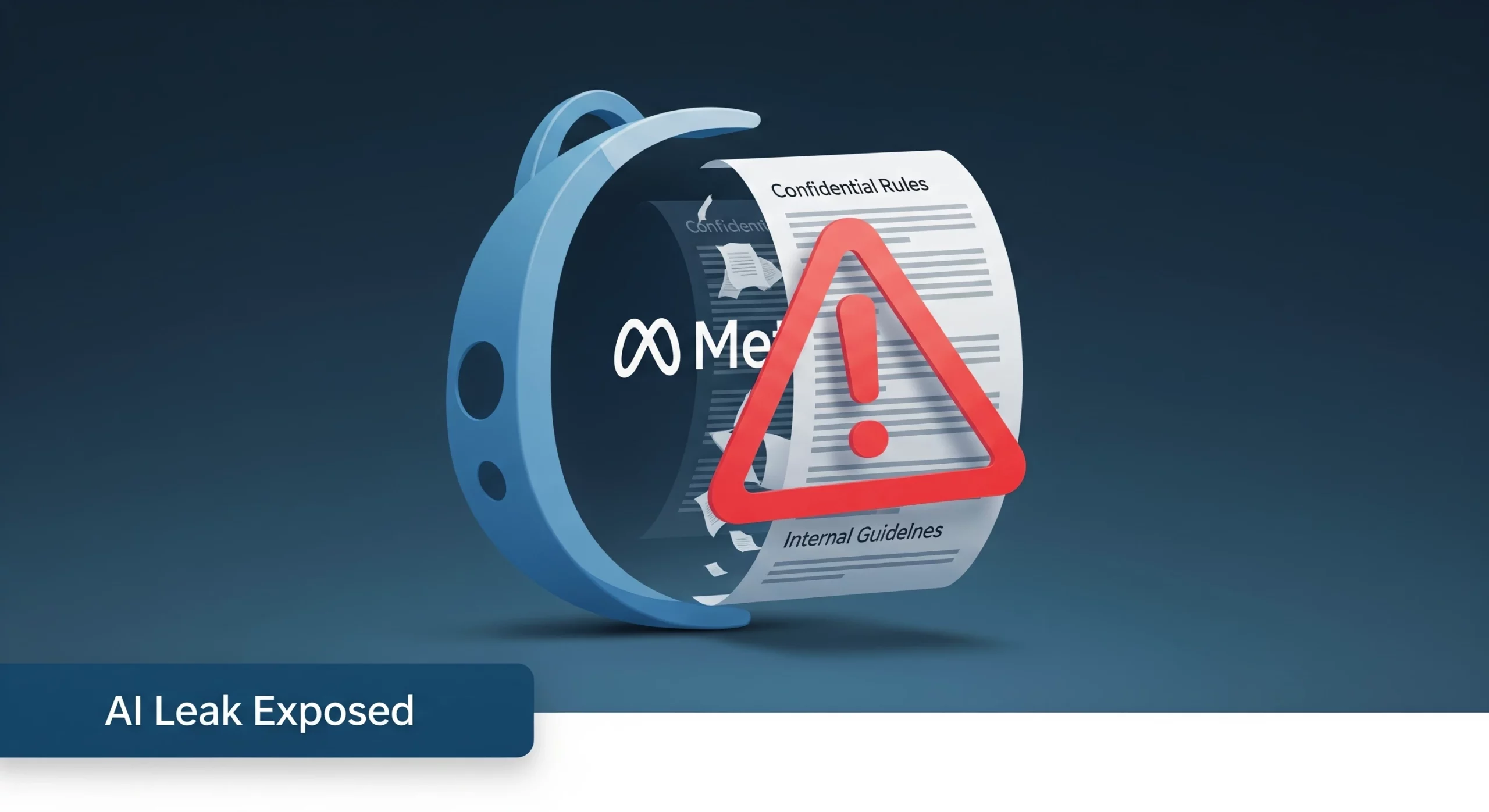A leaked internal Meta file showed that some of the company’s rules for its AI chatbots once allowed responses most people would find unacceptable. Meta has said the document is real, and after the leak it removed several of the worst passages. Now people are asking: how effective is AI moderation, really?
Those internal guidelines were supposed to stay private. But when they ended up in Reuters’ hands, it became obvious why Meta wouldn’t want them public. The document lays out how the company tried to set boundaries around AI behavior — covering ethics, kids’ safety, and content standards — and, frankly, it reads like a playbook with some seriously questionable moves.
The most jarring bits concern conversations with minors. According to Reuters, the file apparently allowed the chatbot to have romantic or sensual exchanges with a child and even to describe a child in flattering, attractiveness-focused terms (one example compared a young person to a “work of art”). It did forbid explicit sexual talk, but that level of intimacy in a chatbot’s interactions with kids? That’s a big red flag.
There are other eyebrow-raising examples. Reportedly, the rules said the bot could generate explicitly racist language if a user phrased the prompt in a certain way, and it could give inaccurate or potentially harmful medical advice so long as a disclaimer was attached. That’s…a lot to swallow.
One odd — almost surreal — guideline suggested deflecting some forbidden image requests with a jokey substitution. The document allegedly showed an unacceptable prompt asking for a topless image of Taylor Swift (hands covering her chest) and an “acceptable” alternative: an image of her holding a huge fish. The two versions were placed side by side, which looks like it was meant to train the model to dodge naughty requests with visual sleight of hand. Meta didn’t comment on that particular example.

After Reuters flagged these sections, Meta admitted the leak was genuine and said it’s revising the problematic parts. It removed the children-interaction passages and called those rules “erroneous and inconsistent” with company policy. Still, Reuters reported that parts of the document continue to suggest that racial slurs could be allowed when couched as hypotheticals, and that misinformation framed as fiction might slip through.
This whole episode has stirred public anger, congressional attention, and rushed promises from Meta. But it also highlights a deeper issue: AI is being rolled out so fast that rulebooks — whether internal or legal — often lag behind. Tech moves forward. Regulations try to catch up. That mismatch matters a lot when the stakes include kids and public health.
For most people, the immediate worry is simple: can we keep minors from talking to general-purpose chatbots unsupervised? In practice, that’s probably unrealistic — lots of teens and kids already use chat tools for homework and fun. Avoiding Meta’s chatbot is especially hard because the company has tucked it into Facebook, Instagram, Messenger, and WhatsApp. The bots are often presented as playful helpers or learning companions, but the leaked rules hint that the engine under the hood doesn’t always match that friendly image.
Lawmakers have called for hearings and new laws, but right now there aren’t many concrete legal obligations compelling companies to police chatbot content — for kids or adults. Plenty of AI firms trumpet their safety work; still, if Meta’s internal manual is anything to go by, the industry has a long way to go. That raises uncomfortable questions about what kinds of conversations these systems have already been having behind closed doors.
Remember: these models don’t think on their own — they follow human-made instructions and design choices, both intentional and accidental. Just because a policy was written at Meta doesn’t prove other companies did the same, but it’s not something we should assume is unique, either. If one of the biggest players had lines like these in its rulebook, it’s fair to wonder what else might be quietly allowed elsewhere.
In short, AI chatbots will only be as reliable as the hidden rules that steer them. Trusting a company’s safety claims without scrutiny? That’s risky. Meta’s leaked playbook is a reminder to take those assurances with a healthy dose of skepticism.

